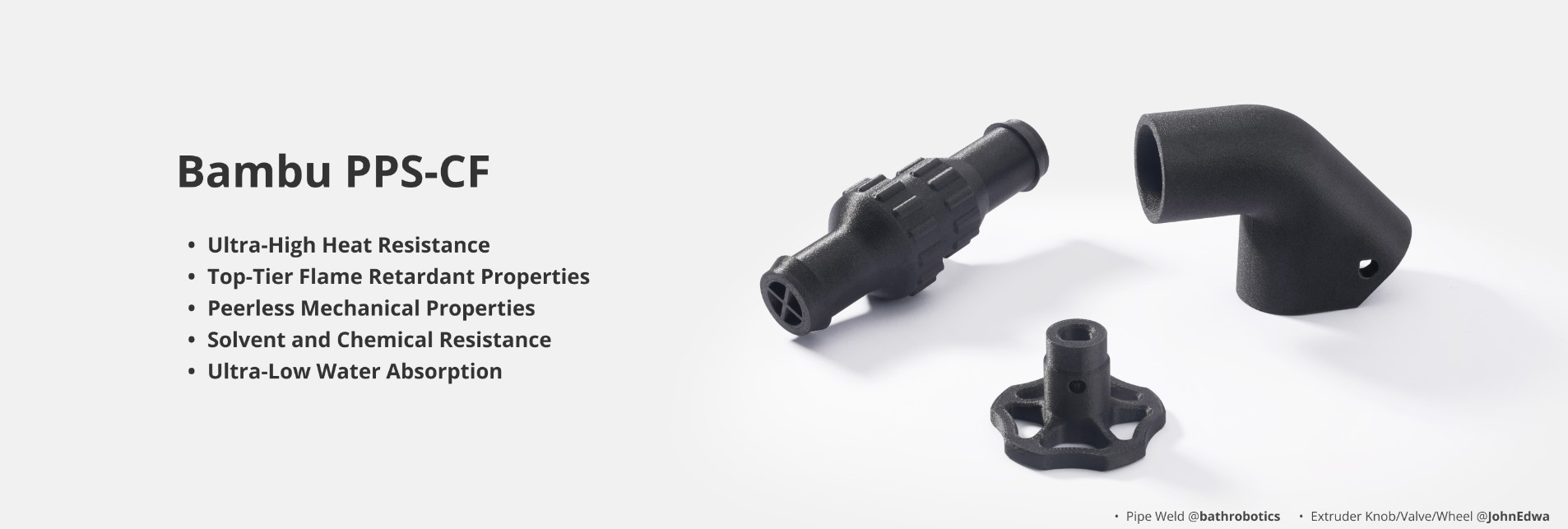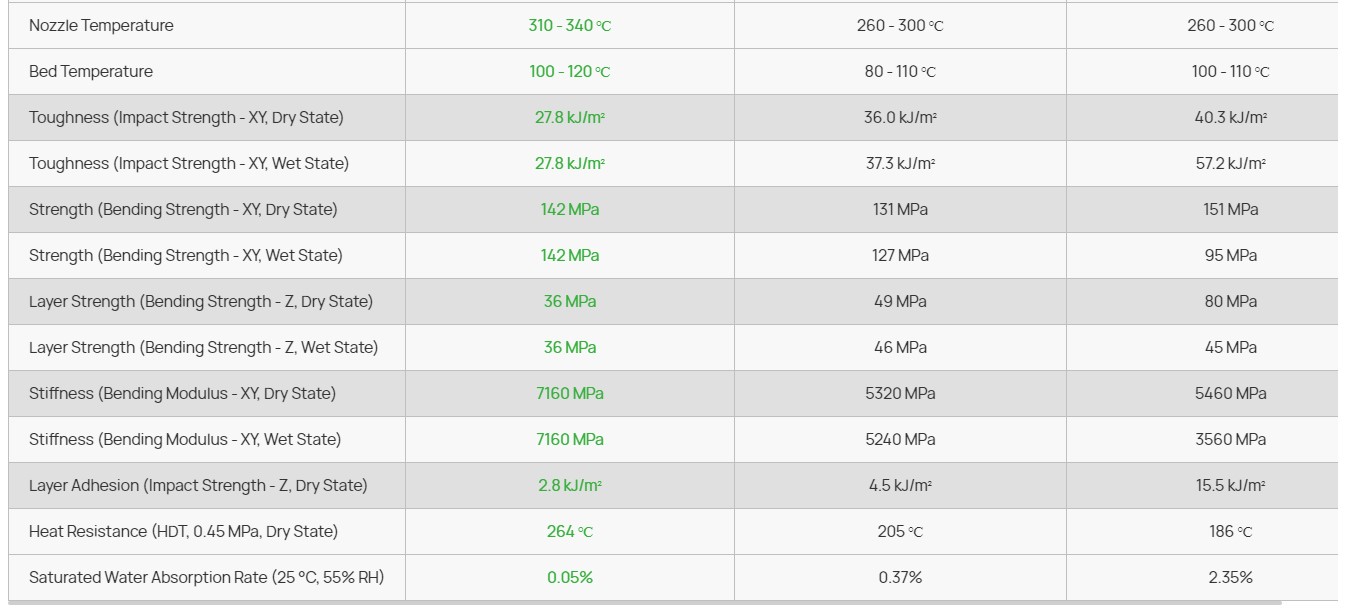Bambu PPS-CF
PPS-CF is a composite material made from carbon fiber-reinforced polyphenylene sulfide. The combination of PPS resin and carbon fiber gives PPS-CF exceptional properties, including excellent resistance to solvents, corrosion, heat, and flames. Additionally, it offers superior strength, stiffness, and dimensional stability, making it a specialized engineering plastic that meets the demands of unique and challenging applications.

Ultra-High Heat Resistance
PPS-CF boasts a heat deflection temperature of up to 264°C under 0.45 MPa and can continuously operate at temperatures exceeding 200°C. This significantly outperforms normal PA-CF materials, which have maximum temperatures around 190°C and 120°C. Its exceptional heat resistance ensures outstanding creep resistance, making PPS-CF ideal for demanding industrial environments and applications.

Superior Flame Retardancy
PPS-CF achieves a UL-94 V-0 flame retardant rating, offering superior safety and reliability in critical areas such as electronics and automotive components. PPS-CF provides long-lasting durability and peace of mind even in the most demanding environments.
Unmatched Mechanical Properties
Combining the stiffness of PPS polymers with the reinforcing power of carbon fiber, PPS-CF offers exceptional stiffness, bending strength, and tensile strength. Its superior dimensional stability and resistance to warping ensure that large-scale prints maintain precision and avoid deformation during the printing process, making it perfect for high-precision applications.

Solvent and Chemical Resistance
PPS-CF offers outstanding solvent and chemical resistance, second only to PTFE (Teflon). It remains virtually insoluble in any solvent below 200°C and exhibits exceptional resistance to acids, bases, and salts under normal conditions. This makes PPS-CF the ideal choice for challenging environments where chemical stability is critical.
Ultra-Low Water Absorption
With an extremely low moisture absorption rate of just 0.05%, PPS-CF ensures that its mechanical and thermal properties remain stable even in humid conditions. Unlike normal PA-CF, which can soften and degrade when exposed to moisture, PPS-CF maintains its strength and durability, making it the superior option for applications requiring high moisture resistance.
Parameters Comparison
Learn more different filaments comparison on Bambu Filament Guide >>


Accessory Compatibility

Recommended Printing Settings |
| Drying Settings before Printing | 100 - 140 °C, 8 - 12 h |
| Printing and Keeping Container's Humidity | < 20% RH (Sealed, with Desiccant) |
| Nozzle Temperature | 310 - 340 °C |
| Bed Temperature (with Glue) | 100 - 120 °C |
| Printing Speed | < 100 mm/
|
Physical Properties
| |
| Density | 1.26 g/cm³ |
| Vicat Softening Temperature | 268 °C |
| Heat Deflection Temperature | 264 °C |
| Melting Temperature | 284 °C |
| Melt Index | 11.48 ± 1.23 g/10 min |
Mechancial Properties
| |
| Tensile Strength | 87 ± 5 MPa |
| Breaking Elongation Rate | 1.2 ± 0.4 % |
| Bending Modulus | 7160 ± 280 MPa |
| Bending Strength | 142 ± 5 MPa |
| Impact Strength | 27.8 ± 2.3 kJ/m² |
Downloads
Filament TDS
Filament MSDS
Filament ROHS
Bambu PPS-CF Printing Guidelines:
- Nozzle Temperature: Recommended range is 310 to 340°C.
- Chamber Temperature: Recommended range is 60 to 90°C.
- Tip: Using higher values within these ranges can enhance the mechanical properties of the printed parts, especially in the Z-direction.
Drying Recommendations:
In a blast drying oven: 100°C to 140°C for 8 to 12 hours.
On an X1 printer's heatbed: 110°C to 120°C for 10 to 12 hours (less effective than a blast drying oven).
Storage Tips:
Annealing Prints: